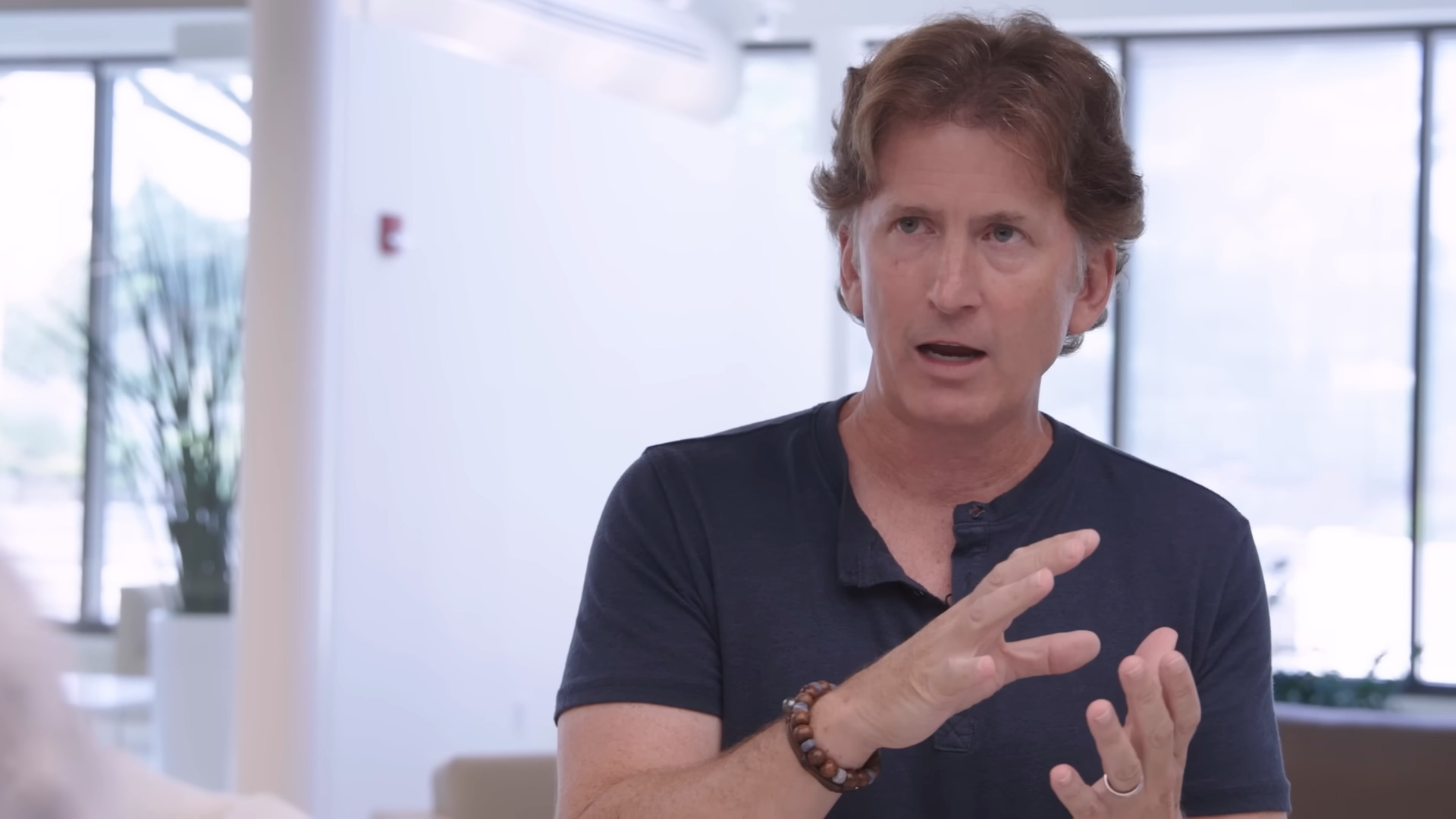Todd Howard reckons he knows why Starfield was so divisive: It was too 'different than you've seen from us in past'
Some players just "prefer the way it's done in Fallout or Elder Scrolls."

Starfield came out seven months ago and many of us are yet to heal from the discourse. Bethesda's "dream game" was a polarising thing, earning plaudits from some quarters and a more ambivalent response from others (including, ah, us). But seven months is a lot of time for reflection, and Bethesda boss Todd Howard reckons he knows why the spacey RPG was so divisive: It just wasn't traditionally Bethesda enough for some people.
Chatting with Kinda Funny, Howard said that many people have a very specific set of expectations when it comes to Bethesda's games: "We see a lot of players saying 'This is what I want out of a Bethesda game, which is to explore a world in a certain way, and Starfield didn't give me that. I prefer the way it's done in Fallout or Elder Scrolls.'"
And although Howard thinks that's "perfectly understandable," he says it's just not the experience Starfield sets out to provide. "I do think for us—particularly me—going into a science-fiction game, I want to be able to land on all the planets. I want the game to say 'Yes' to us, knowing that that content is gonna be different than you've seen from us in the past."
Which, hm, sure. I don't necessarily think Howard is wrong about that. I don't doubt that many players came to the next big Bethesda game expecting a kind of big, contiguous world they'd be able to explore just like they did the Wasteland and Tamriel, and were put out to find a bunch of relatively small levels siloed off from one another by loading screens.
But let's be honest, I don't think it's the fact that Starfield wasn't like Skyrim or Fallout 4 that has it sitting at a 61% "Mixed" user review score over on Steam right now. As far as I saw, it wasn't really Starfield's structure that rubbed some players the wrong way, but rather that its structure didn't have much of interest within it. Just a lot of very similar planets and some very anodyne writing (the latter, in particular, was my chief complaint about the game).
Anyway, if your problem with Starfield was just that it wasn't really Elder Scrolls-y or Fallout-y enough for you, Howard doesn't seem likely to change it up. "That's some of the trade-offs we'll make to do what we think makes a science-fiction game like this… to make it what it should be." Although he does kind of concede that the complaints about Starfield's maps might have held some water.
Overall, though, Howard seems pretty happy with Starfield, and in particular with the fact that it's probably one of Bethesda's most technically proficient launches ever. "We were over the moon with… the actual data we were getting back and how the game was performing on a technical level," even as Starfield "set a record for how many players we had in a game."
The biggest gaming news, reviews and hardware deals
Keep up to date with the most important stories and the best deals, as picked by the PC Gamer team.
Hey, fair enough. For all my gripes about Starfield, I don't think it ever crashed on me. Given that I spent last Sunday modding Fallout: New Vegas into something actually playable, I don't think we should underestimate how valuable just working is for games like these.

One of Josh's first memories is of playing Quake 2 on the family computer when he was much too young to be doing that, and he's been irreparably game-brained ever since. His writing has been featured in Vice, Fanbyte, and the Financial Times. He'll play pretty much anything, and has written far too much on everything from visual novels to Assassin's Creed. His most profound loves are for CRPGs, immersive sims, and any game whose ambition outstrips its budget. He thinks you're all far too mean about Deus Ex: Invisible War.

